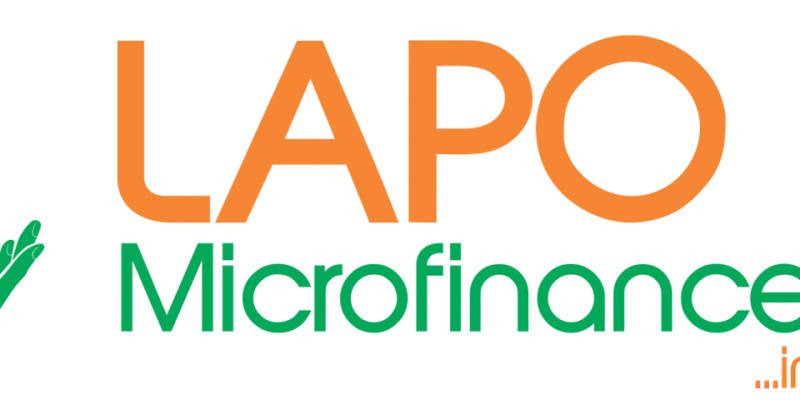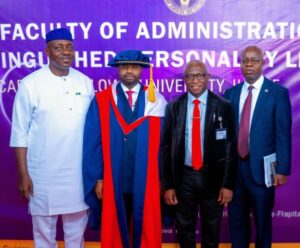LAPO MFB drives educational access with affordable edufinance loans

LAPO
In a country where quality education remains a privilege for many, the cost of schooling has become a heavy burden on the shoulders of low-income families and under-resourced private school owners. For years, financial exclusion has silently eroded the aspirations of countless Nigerian children and dimmed the future of community schools. But a quiet revolution is unfolding—driven by financial innovation and a deep-seated commitment to educational empowerment.
A statement from the organisation said, leading this shift is LAPO Microfinance Bank through its Edufinance Loan Products—targeted as School Improvement Loans for school proprietors and School Fees Loans for parents—the bank is addressing a glaring but underreported crisis: financial inaccessibility to education.
This move comes at a time when the statistics are dire. According to UNESCO, over 20 million Nigerian children are currently out of school, the highest figure globally. While public education is often underfunded and overstretched, low-cost private schools—many serving marginalized urban and rural communities—are bridging this gap but remain chronically underfinanced. Proprietors often operate under severe infrastructural deficits, with dilapidated classrooms, insufficient furniture, and lack of access to digital learning tools.
Recognising this, LAPO MfB launched its Edufinance Loans as a twin-edged solution. The School Improvement Loan provides up to ₦3 million for proprietors to upgrade facilities, expand capacity, and improve the learning environment. On the other hand, the School Fees Loan—a lifeline for many low-income parents—offers up to ₦100,000 to spread tuition payments over time, ensuring children stay in school.
Both loan types are offered with competitive interest rates ranging between 3% to 5% per month, depending on the loan type, amount, and repayment duration. These rates are structured to be significantly more affordable than informal lenders or loan sharks, whose interest rates can exceed 20% monthly.
“Access to finance remains one of the biggest barriers to education in underserved communities,” said Oluremi Akande, Director of Marketing and Corporate Communication. He further noted, “We designed these products not just to support education, but to empower families and school owners with dignity and flexibility.”
And the numbers show the impact. Since inception, LAPO’s Edufinance initiative has disbursed over ₦4 billion, supporting more than 45,000 students and 3,800 school proprietors across Nigeria. Beneficiaries range from mothers running backyard schools in peri-urban Lagos to farming families in northern Nigeria seeking to secure their children’s academic future.
EFInA (Enhancing Financial Innovation and Access), in its 2023 report, noted that while 64% of Nigerian adults are financially included, a significant portion of this population remains underserved when it comes to targeted education financing.
LAPO’s intervention, according to education analysts, is filling this void in a manner that aligns with both financial inclusion and Sustainable Development Goal 4—inclusive and equitable quality education for all.
In Kaduna, Mrs. Hafsat Danladi, a mother of five and petty trader, recounted how the School Fees Loan helped her two sons continue their secondary education after her husband lost his job. “We were struggling to meet up. The school was about to send them home. LAPO came in just in time,” she said, her eyes welling with tears.
But the impact isn’t just anecdotal. A joint study by the World Bank and the Nigerian Bureau of Statistics revealed that households in the bottom 40% income bracket spend up to 30% of their income on basic education. In many cases, this results in children dropping out when sudden economic shocks occur—illness, job loss, or inflation.
LAPO’s EduFinance model uses responsible lending and community-based trust systems to mitigate these risks. Loans are disbursed quickly with flexible repayment terms, allowing beneficiaries to avoid exploitative lenders while building a credit history that may support future economic activity.
More importantly, the program is gender-sensitive. “A significant percentage of our school proprietors are women,” said Lilian Ehigiamusoe, Executive Director, Operations, LAPO Microfinance Bank. “When you empower women to run schools effectively, you’re not just improving education—you’re transforming communities.”
As Nigeria grapples with inflationary pressures and rising costs of living, interventions like LAPO’s EduFinance offer more than financial relief. They represent a paradigm shift: from reactive aid to proactive empowerment.
With plans to expand the product reach to more rural communities and deepen financial literacy alongside credit access, LAPO Microfinance Bank is not just lending money—it’s restoring hope and rebuilding futures, one school and one child at a time.




